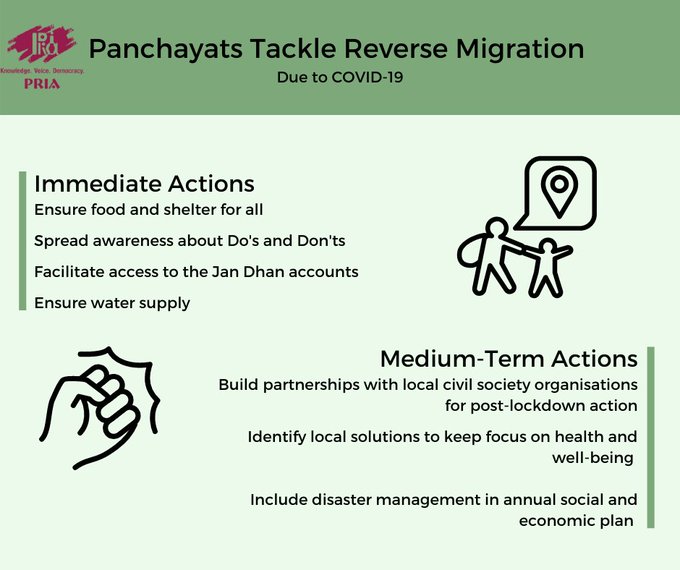| Date 14-Apr-2020 to 14-Apr-2020 |
Location Time: 11:00 am - 12:45 pm |
Format Online |
Thirty seven percent or 45.36 crore Indians are migrants. Approximately three crores of them migrate for employment or work (Census, 2011). Majority of these are employed in informal sector in the cities. ‘India on the move and churning’ – a chapter in the Economic Survey 2016-17 revealed that an average of nine million people migrate between states every year for either education or work. However, no one has ever thought that this ‘moving and churning’ will become a nightmare.
Amidst lockdown due to COVID-19, it became clearer that ‘reverse’ migration of millions of people back to villages would be an unprecedented phenomenon. The sudden ‘lockdown’ to halt the spread of COVID-19 virus has created panic of infection and death triggering this reverse migration. By all accounts, this situation is likely to continue because of the uncertainty of lockdown period and might have serious consequences in the long run.
The central and state governments have announced several interim relief packages. However, to make it work, Panchayati Raj Institutions (PRIs) can play a major role being the most proximate institutions.
To address this issue, PRIA International Academy organised a webinar on “COVID-19: Preparedness and Responsiveness of PRIs in Dealing with Reverse Migration” on April 14, 2020.
The key messages emerged from the discussion as follows:
The Webinar was moderated by Dr Anshuman Karol, Senior Programme Manager, Society for Participatory Research in Asia (PRIA), New Delhi
The panellists for the webinar included:
Read the full report of the webinar here.
Watch the recording of the webinar here.